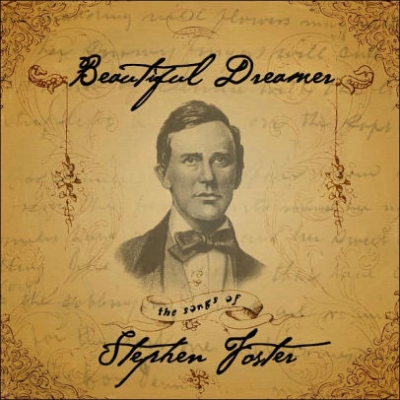Playlist 3 March 2019 |
|
| Rhythm and Blues – Philip Sparke | Opening for weekly show Foden's Band MD: Michael Fowles - 2010 |
| Montreal Citadel - Norman Audiore | Egon Virtuosi Brass BM: James Williams - 1993 |
| Le Clemenza Di Tito - Overture - Mozart | Skellerup Woolston Brass Band (New Zealand) MD: Brian A. Barrett - 1967 |
| Cantabile - Paganini arr: Goff Richards | Euphonium Soloist Steven Mead with piano accompaniment Nicoletta Mezzini - 2001 |
| Clair De Lune Claude Debussy arr: Christopher Mowat | London Brass Ensemble - 1986 |
| Westwood Go! - Goff Richards | Desford Colliery Caterpillar Band MD: James Watson - 1990 |
| Morte Criste (When I Survey The Wondrous Cross) - Emrys Jones arr: Denzil Stephens | Christie-Tyler Cory Band with the Pendyrus Male Voice Choir MD: Denzil Stephens - 1992 |
| Whistling Bobby - Pete Alman (Real name Hans Peter Deutsch) arr: Edrich Siebert | Wingates Temperance Band MD: Denis Smith -1971 |
| La Scala di Seta (The Silken Ladder) Gioachino Rossini arr: Major Peter Parkes | Black Dyke Mills Band MD: Major Peter Parkes - 1982 |
| Cavatine De Beatrice Di Tenda - Vincenzo Bellini arr: J. B. Arban | Cornet Soloist Russell Gray with the Fodens Richardson Band MD: Frank Renton - 2002 |
| Wine Women and Song Op 333 - Johann Strauss ll | GUS (Footwear) Band MD: Stanley Boddington - 1972 |
| Folk Festival - Shostakovich arr: Howard Snell | Williams Fairey Engineering Band MD: |
| Legend in Brass - I. Fanfare 2. Soliloquy 3. Finale - James Curnow | Sellers Engineering Band MD: Philip McCann - 1994 |
| On With the Motley - Leoncavallo arr: Ray Farr | Soprano Soloist Peter Roberts with the Yorkshire Building Society Band |
| Finale 9th Symphony (From The New World) - Dvorak arr: Weston Nicholl | John Foster Black Dyke Mills Band MD: |
| Le Cid - Jules Massenet Arr: Howard Snell | Sun Life Band MD: Bryan Hurdley - 1992 |
| Quintessence - Robert Redhead | Yorkshire Building Society Band MD: Dr. David King - 1997 |
| Una Furtiva Lagrima - Donizetti arr: Thomas Wyss | Cornet Soloist Roger Webster with the Brighouse and Rastrick Band MD: David Hirst - 1997 |
| Finlandia Op. 26 (Be Still My Soul) - Jean Sibelius | Christie-Tyler Cory Band with the Pendyrus Male Voice Choir MD: Denzil Stephens - 1992 |
| Beautiful Dreamer - Stephen Foster arr: Howard Snell | CWS (Glasgow) Band MD: Howard Snell - 1990 |
| Motondo - Donald Osgood | Egon Virtuosi Brass BM: James Williams - 1993 |
| Rhythm and Blues – Philip Sparke | Closing for weekly show Foden's Band MD: Michael Fowles - 2010 |
Sunday Bandstand 3 March 2019

Stephen Collins Foster (July 4, 1826 – January 13, 1864), known as ‘the father of American music’, was an American songwriter known primarily for his parlour and minstrel music. He wrote more than 200 songs, including ‘Oh! Susanna’, ‘Hard Times Come Again No More’, ‘Camptown Races’, ‘Old Folks at Home’ (‘Swanee River’), ‘My Old Kentucky Home’, ‘Jeanie with the Light Brown Hair’, ‘Old Black Joe’, and ‘Beautiful Dreamer’, and many of his compositions remain popular today. He has been identified as ‘the most famous songwriter of the nineteenth century’ and may be the most recognisable American composer in other countries. His compositions are sometimes referred to as ‘childhood songs’ because they have been included in the music curriculum of early education. Most of his handwritten music manuscripts are lost, but editions issued by publishers of his day can be found in various collections
He was born on July 4, 1826, to William Barclay Foster and Eliza Clayland Tomlinson Foster, with three older sisters and six older brothers. His father was of Ulster Scots descent. He attended private academies in Allegheny, Athens, and Towanda, Pennsylvania and received an education in English grammar, diction, the classics, penmanship, Latin, Greek, and mathematics. The family lived in a northern city, but they did not support the abolition of slavery.
He taught himself to play the clarinet, violin, guitar, flute, and piano. He did not have formal instruction in composition, but he was helped by Henry Kleber (1816–97), a German-born music dealer in Pittsburgh. In 1839, his brother William was serving his apprenticeship as an engineer at Towanda and thought that Stephen would benefit from being under his supervision. The site of the Camptown Races is 30 miles (48 km) from Athens and 15 miles from Towanda. His education included a brief period at Jefferson College in Washington, Pennsylvania, now Washington & Jefferson College. His tuition was paid, but he had little spending money. He left Canonsburg to visit Pittsburgh with another student and did not return.
In 1846, Foster moved to Cincinnati, Ohio, and became a bookkeeper with his brother Dunning's steamship company. He wrote his first successful songs in 1848–1849, among them ‘Oh! Susanna’, which became an anthem of the California Gold Rush. In 1849, he published Foster's Ethiopian Melodies, which included the successful song ‘Nelly Was a Lady’ as made famous by the Christy Minstrels. A plaque marks the site of his residence in Cincinnati, where the Guilford School building is now located.
Then he returned to Pennsylvania and signed a contract with the Christy Minstrels. It was during this period that he wrote most of his best-known songs: ‘Camptown Races' (1850), ‘Nelly Bly’ (1850), ‘Ring de Banjo’ (1851), ‘Old Folks at Home’ (known also as ‘Swanee River’, 1851), ‘My Old Kentucky Home’ (1853), ‘Old Dog Tray’ (1853), and ‘Jeanie with the Light Brown Hair’ (1854), written for his wife Jane Denny McDowell.
Many of Foster's songs were of the blackface minstrel show tradition popular at the time. He sought to ‘build up taste among refined people by making words suitable to their taste, instead of the trashy and really offensive words which belong to some songs of that order’. Many of his songs had Southern themes, yet Foster never lived in the South and visited it only once during his 1852 honeymoon.
His last four years were spent in New York City. There is little information on this period of his life, although family correspondence has been preserved.
Foster became ill with a fever in January 1864. Weakened, he fell in his hotel in the Bowery, cutting his neck. His writing partner George Cooper found him still alive but lying in a pool of blood. Foster died in Bellevue Hospital three days later at the age of 37. Other biographers describe different accounts of his death.
When Foster died, his leather wallet contained a scrap of paper that simply said, 'Dear friends and gentle hearts', along with 38 cents in Civil War scrip and three pennies. The note is said to have inspired Bob Hilliard's lyric for "Dear Hearts and Gentle People" (1949). Foster was buried in the Allegheny Cemtery in Pittsburgh. After his death, Morrison Foster became his ‘literary executor’. As such, he answered requests for copies of manuscripts, autographs, and biographical information. One of the best-loved of his works was ‘Beautiful Dreamer’, published shortly after his death.



















